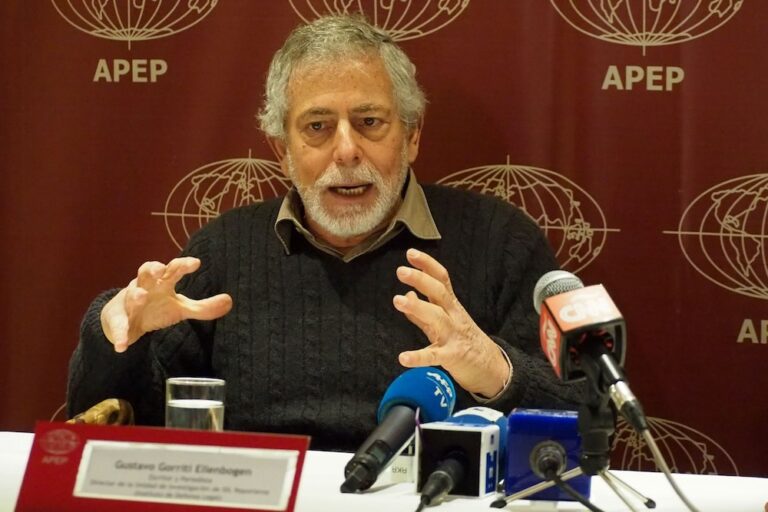(IPYS/IFEX) – On 21 March 1999, President Alberto Fujimori announced that the government is trying to get past the problems involving businessman Baruch Ivcher. He was responding to questions regarding the possibility of an amicable solution in the famous case of the television businessman who was stripped of his Peruvian citizenship by means of an […]
(IPYS/IFEX) – On 21 March 1999, President Alberto Fujimori announced
that
the government is trying to get past the problems involving businessman
Baruch Ivcher. He was responding to questions regarding the possibility
of
an amicable solution in the famous case of the television businessman
who
was stripped of his Peruvian citizenship by means of an executive order
that
was used to take away Ivcher’s administrative powers over his television
channel.
**Updates IFEX alert of 9 March 1999; for background on Ivcher being
stripped of his citizenship and television station ownership rights see
IFEX
alerts of 6 November and 15 July 1998, 19 September, 12 September, 29
August, 6 August, 24 July, 14 July, 3 June, and 29 May 1997**
The Ivcher case is at a decisive phase at the Interamerican Court of
Human
Rights (IACHR). In addition, last week the businessman met with Peru’s
representative to the Organization of American States (OAS), Beatriz
Ramaccioti.
Fujimori suggested that the additional time conceded to Peru to solve
this
matter shows that the Peruvian lawyers’ delegation has been
communicating
with members of the Commission.
Various personalities have also expressed their hope that the government
will follow the recommendations made by the IACHR in reference to the
Ivcher
case.
Ombudsman Jorge Santistevan de Noriega expressed that if the case is
brought
to the Interamerican San José Court in Costa Rica there will be no
remedy if
a trial begins at this international level. “It is very clear, that
there
was an arbitrary stripping of (Ivcher’s) citizenship, and a decision was
made by the Immigration authorities that will have to be rendered
invalid.
Only when this is revoked, either by a decision made by the State or by
an
imposition from the Court, only then can the case begin to be resolved,”
he
remarked.
The director of the Andean Lawyers’ Commission, Diego García Sayán, was
of
the opinion that the Peruvian’s government negotiation with the OAS
Human
Rights Commission comes a little late to allow for a peaceful resolution
of
the Ivcher case; nevertheless he suggested that “it would be very good
to
reach a solution that avoids a trial at the Interamerican Court in San
José,
Costa Rica.”


